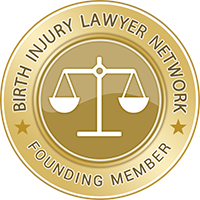RH-ABO Incompatibility
Rh-ABO incompatibility in simple terms is blood incompatibility between the mother and the child she is carrying which can lead to the newborn suffering from hemolytic disease also known as the Rh or Rhesus disease. It occurs when a woman with an Rh-negative blood becomes pregnant with a baby that has an Rh-positive blood. To better understand this condition, it is best to be familiar with the Rh or Rhesus factor.
The Rh factor belongs to the Rh blood group system which is one of the 30 current human blood group systems. Next to the ABO, it is the most important blood group system. This is what is referred to by either the positive or negative sign that is placed in addition to a person's blood type, either A, B, O or AB. The Rh factor actually refers to a specific protein (D-antigen) that is found on the surface of the red blood cells. If a person has it, he or she is considered as being Rh-positive, if not then he or she is considered as being Rh-negative. The Rh factor is an inherited trait and is not a health problem, that is until pregnancy.
When the mother is an Rh-negative and the father is an Rh-positive, the baby is most likely to be Rh-positive. During pregnancy, the mother's and baby's blood systems are separate. However, there are situations wherein the baby's blood comes in contact with the mother's and this is where the problem starts. Because it is not familiar with the baby's positive Rh factor, the mother's system will create antibodies and treat the Rh positive baby as an intruder in her body. This situation is termed as the mother being sensitized.
The antibodies created by the body of the sensitized mother will attack the blood of the Rh positive baby causing the breakdown of the baby's red blood cells resulting to anemia. This hemolytic disease or condition in severe cases can lead to illness, brain damage and even death.
Other situation wherein sensitization can also occur are:
- Blood transfusion
- Miscarriage
- Abortion
- Ectopic pregnancy
- Amniocentesis
These antibodies, however, usually do not pose as a problem during the first pregnancy as the only time that the baby's blood comes in contact with the mother's is during labor and delivery. At that time, the mother may not have made enough antibodies to cause a serious problem on the baby's health. However, these antibodies are not likely to go away, which means that the babies she will carry during her next pregnancies will be at high risk of having the Rh disease because the antibodies will always be present during every pregnancy.
Rh incompatibility may be prevented by having the mother undergo an Rh factor test during her first prenatal visit to determine if she is Rh positive or Rh negative. It will also help if the father undergoes the same test. The mother should also be tested whether she is already sensitized or not.
To prevent sensitization, a mother is given an injection of Rh immunoglobulin (RhIg) also known as Rhogam at 28 weeks gestation and another dose within 72 hours of birth. This injection will also minimize the mother's reaction to the Rh positive red cells.
Find an Experienced Birth Injury Attorney in your Local Community
 Find A Lawyer in Columbus, OH
Find A Lawyer in Ohio
Find A Lawyer in Any State
Find A Lawyer in Columbus, OH
Find A Lawyer in Ohio
Find A Lawyer in Any State
